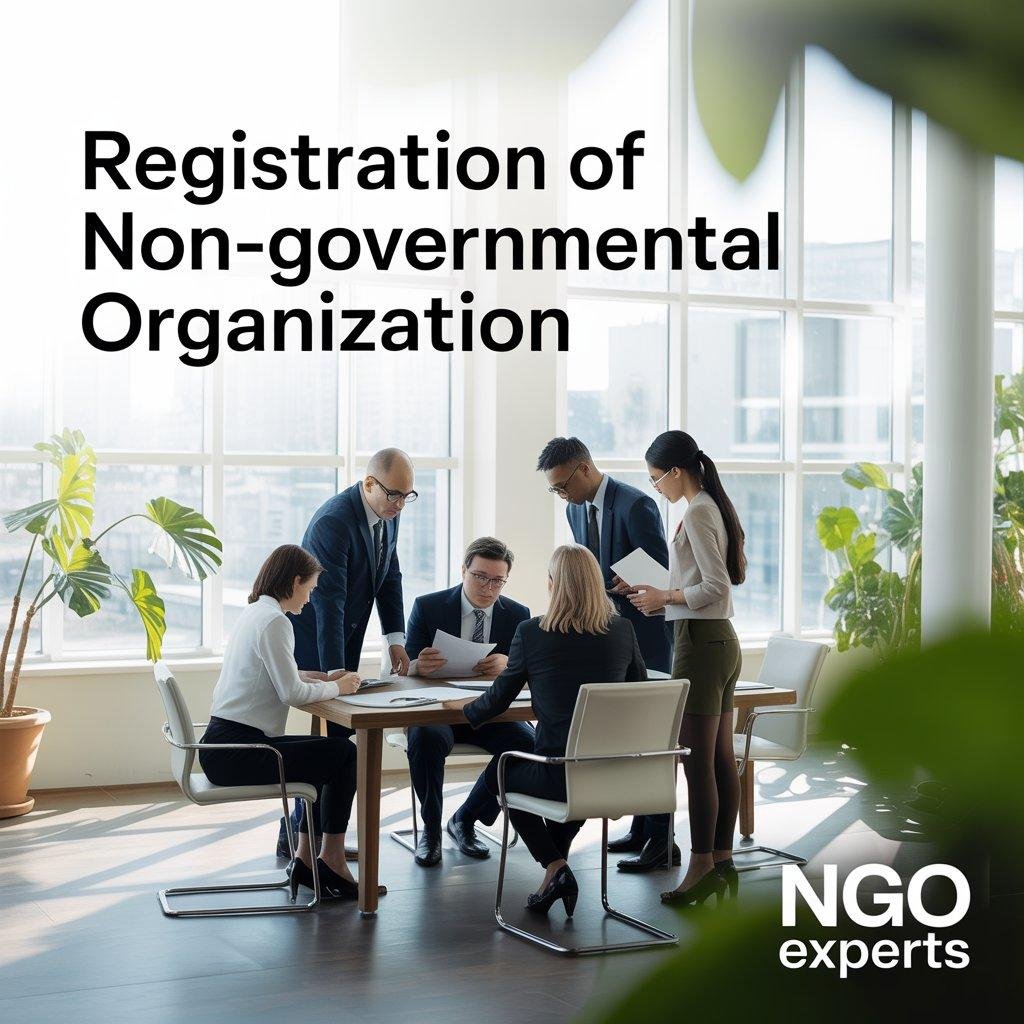Complete Guide to Registration of Non Governmental Organization

Starting a Non-Governmental Organization (NGO) is a great way to bring positive change to society. But before beginning the work, every NGO must complete the legal process of registration. I’m Komal Ahuja from NGO Experts, and in this article, I’ll explain everything about the registration of non governmental organization in India in simple, clear language.
What Is a Non Governmental Organization?
A Non-Governmental Organization, or NGO, is a group formed by people who want to work for social, environmental, or educational causes. NGOs operate without the goal of profit. They focus on serving the public, supporting the needy, and improving lives.
To function legally and get government recognition, every NGO must go through the proper process to start NGO and obtain official registration. This step ensures transparency, credibility, and access to various benefits.
Types of NGOs in India
Before starting the registration, it’s important to decide which type of NGO you want to form. In India, you can register an NGO in three main ways:
-
Trust – Ideal for charitable or religious purposes.
-
Society – Suitable for social, educational, or cultural activities.
-
Section 8 Company – Registered under the Companies Act for large-scale non-profit work.
Each type has a slightly different registration process. The choice depends on the nature and scope of your organization’s work.
Process to Start NGO
The process to start NGO in India involves several simple steps. Here’s a clear breakdown:
-
Decide a name – Choose a unique name that represents your mission. Make sure it’s not already taken.
-
Prepare documents – Collect ID proofs, address proofs, and prepare legal documents like the Trust Deed or Memorandum of Association.
-
Draft governing rules – These include objectives, structure, and responsibilities of members.
-
Submit application – Apply to the appropriate Registrar (Charity Commissioner, Registrar of Societies, or ROC).
-
Get registration certificate – Once approved, your NGO will receive an official registration certificate.
After registration, your NGO becomes a legally recognized entity. It can open a bank account, receive donations, and work on approved projects.
Importance of Darpan Registration
After your NGO is registered, the next step is Darpan registration. This process is managed by NITI Aayog, Government of India. It helps NGOs connect with various ministries, apply for grants, and build trust with donors.
By registering on the Darpan Portal, your NGO receives a unique ID number. This ID is often required when applying for government funding or CSR (Corporate Social Responsibility) projects. The Darpan registration process ensures transparency and helps the government maintain a record of active NGOs.
Understanding 12A Registration
After completing the Darpan registration, the next important step is 12A registration. This registration is done under the Income Tax Act. It allows your NGO to receive donations and grants without paying income tax on them.
12A registration also builds trust with donors, as it confirms that your NGO is legally recognized and eligible for tax benefits. Together, Darpan and 12A registrations help your NGO operate smoothly, attract funding, and create long-term impact.
Why Professional Help Is Important
The registration of non governmental organization requires accurate documentation and proper understanding of legal procedures. A small mistake can delay approval. That’s why getting professional guidance is always a smart choice.
At NGO Experts, I personally guide NGOs through every step of the process—from document preparation to Darpan and 12A registrations. My goal is to make the entire journey simple, transparent, and stress-free so you can focus on your mission.
Common Mistakes to Avoid
Many people forget to check the availability of the NGO name or submit incomplete documents. Others skip Darpan or 12A registration, thinking they are optional. But these steps are essential for legal compliance and future funding. Always double-check your details and keep copies of all submitted documents.
Final Thoughts
The registration of non governmental organization is not just a legal step—it’s the foundation of your NGO’s credibility. By completing the process to start NGO, Darpan registration, and 12A registration, you make your organization legally strong and financially secure.
If you’re ready to start your NGO, reach out to me at NGO Experts. I’ll help you handle every step with clarity and confidence, turning your vision for social change into a legally recognized reality.
- Business
- Research
- Energy
- Art
- Causes
- Tech
- Crafts
- crypto
- Dance
- Drinks
- Film
- Fitness
- Food
- Giochi
- Gardening
- Health
- Home
- Literature
- Music
- Networking
- Altre informazioni
- Party
- Religion
- Shopping
- Sports
- Theater
- Wellness


